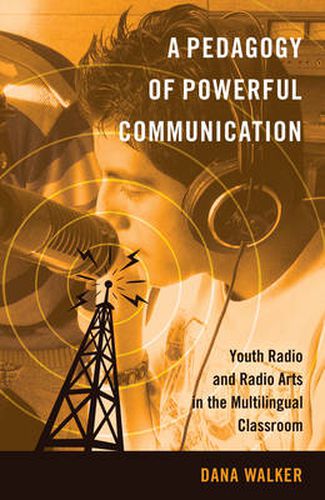Readings Newsletter
Become a Readings Member to make your shopping experience even easier.
Sign in or sign up for free!
You’re not far away from qualifying for FREE standard shipping within Australia
You’ve qualified for FREE standard shipping within Australia
The cart is loading…






A Pedagogy of Powerful Communication calls for a revisioning of second language and literacy teaching, arguing for a move away from skills-based ESL instruction where communication is treated as a set of pedagogical techniques, toward a pedagogy of powerful communication that views communication as necessary for effective participation in school, relationships, local/global communities, and democratic society. This pedagogy promotes critical multiliteracies and language development through youth engagement in the practices of media and artistic communities in and out of school, online, and on the airwaves. The argument for a pedagogy of powerful communication draws on evidence from current research; recommended curriculum and pedagogies are described in detail; and case studies provide an in-depth look at processes of meaning making, identity work, knowledge and skill acquisition, and the key role that community mentors play in mediating youths’ thinking, emotion, and creative productions. This book will be highly useful for teachers and professors of literacy and language education, as well as researchers and theorists in the areas of youth media and arts, community-school-university collaborations, youth development, and research methodologies for studying individual and collective change in the context of educational innovation.
$9.00 standard shipping within Australia
FREE standard shipping within Australia for orders over $100.00
Express & International shipping calculated at checkout
A Pedagogy of Powerful Communication calls for a revisioning of second language and literacy teaching, arguing for a move away from skills-based ESL instruction where communication is treated as a set of pedagogical techniques, toward a pedagogy of powerful communication that views communication as necessary for effective participation in school, relationships, local/global communities, and democratic society. This pedagogy promotes critical multiliteracies and language development through youth engagement in the practices of media and artistic communities in and out of school, online, and on the airwaves. The argument for a pedagogy of powerful communication draws on evidence from current research; recommended curriculum and pedagogies are described in detail; and case studies provide an in-depth look at processes of meaning making, identity work, knowledge and skill acquisition, and the key role that community mentors play in mediating youths’ thinking, emotion, and creative productions. This book will be highly useful for teachers and professors of literacy and language education, as well as researchers and theorists in the areas of youth media and arts, community-school-university collaborations, youth development, and research methodologies for studying individual and collective change in the context of educational innovation.